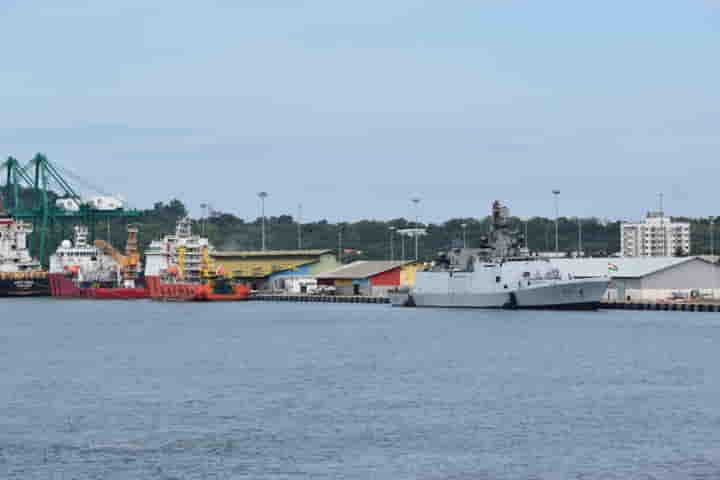Two Indian warships heading for a major joint exercise with the United States, Japan and Australia at the US base of Guam, have docked in Brunei, flagging New Delhi’s “Act East” policy and naval assertion in the Indo-Pacific.
The two naval ships at Guam, a key base and headquarters of the US Indo-Pacific command, will be joined by warships from countries that form the QUAD. Together, the quartet comprising India, US, Australia and Japan will hold Malabar-21 naval exercises, within the range of China’s DF-26 B“Guam killer” missiles.
Analysts point out that the manoeuvres were meant to demonstrate the intent of QUAD partners to ensure the safety of key shipping lanes which are used for the conduct of international trade. They have a message of deterrence for China.
Hoping to demonstrate its heft as a rising great power, China is flexing its military muscles in the Indo-pacific region by showcasing its willingness to use force in order to exercise control over most of the South China Sea (SCS). China also has a dispute with Japan over the Senkaku islands in the East China Sea—a claim that is bringing Beijing at loggerheads with Tokyo. The friction between the two has surged after Japan has shown its military intent to support Taiwan. Littoral states of the SCS, including Brunei, Vietnam, Malaysia and the Philippines are unwilling to accept China’s claims as well as unremitting sabre rattling in the SCS.
Ties between India and China have also gone south on account of their military standoff in eastern Ladakh and Chinese assertion in the Indian Ocean and South Asia.
Apart from Malabar exercise, European powers are also crowding into the Indo-Pacific region, again, in a signal of opposition to China. Germany has despatched a frigate, Bayern for the SCS , while British aircraft carrier Queen Elizabeth is already present in these waters.
The German frigate on its seven-month voyage to Australia, Japan, South Korea and Vietnam. As the Bayern set sail from its home-base of Wilhelmshaven, German defence minister Kramp-Karrenbauer made it plain that Germany wanted that the “existing law to be respected, sea routes to be freely navigable, open societies to be protected and trade to follow fair rules".
Also Read: Germany joins warship swarm in the South China Sea
During their stay in Brunei, the Indian ships will participate in an exercise with ships of the Royal Brunei Navy.
"Indian Naval Ships Shivalik and Kadmatt arrived at Muara, Brunei as part of their deployment to South East Asia on 09 Aug 21. The exercise will provide an opportunity to both the navies to enhance inter-operability, gain from best practices and develop a common understanding of procedures for
Maritime Security Operations," India's defence ministry said in a statement.
Both the ships belong to the Indian Navy's Eastern Fleet. Based in Visakhapatnam under the Eastern Naval Command, the fleet has acquired high importance in tune with India’s ASEAN-centric Act East policy which can flourish only if the sea lanes heading to the straits of Malacca, in the Bay of Bengal and the Andaman Sea are fully protected .
The ships will head to Guam once these exercises in Brunei are completed.
Also Read: Indo-Pacific nations sharpen claws against China with US weapons
Also Read: South Korea seeks aircraft carrier amid Indo-Pacific turmoil




















